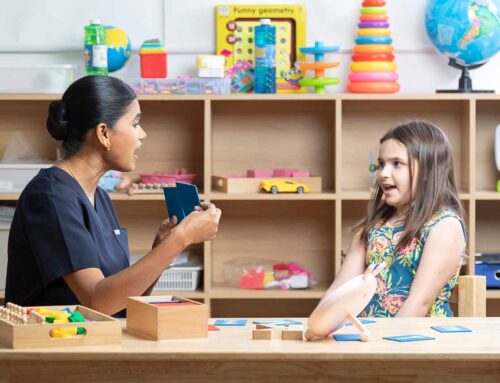Sorting is one of the most effective and accessible ways to strengthen early cognitive development in children. In Phnom Penh, occupational therapists are using simple tools—like colored sticks, cups, and trays—to help children enhance their attention, problem-solving, and fine motor coordination. These activities may seem basic, but they play a critical role in developing a child’s ability to process, categorize, and make decisions.
At Occupational Therapy Phnom Penh, structured sorting tasks are tailored to support children with autism, ADHD, developmental delays, and learning disabilities. Whether it’s by color, shape, or size, these exercises help lay the foundation for essential academic and life skills.
How Sorting Supports Brain Development
Sorting involves more than matching colors—it taps into a range of executive functions, including:
-
Visual scanning and attention to detail
-
Working memory and categorization
-
Fine motor skills and coordination
-
Cognitive flexibility and decision-making
Children with attention deficits or sensory processing challenges often benefit from these predictable, repetitive tasks. They feel calm, successful, and motivated to keep trying—especially when the activity is presented in a playful and engaging way.
Occupational Therapy Tools That Make a Difference
In Phnom Penh, therapists use sorting to work on both motor and cognitive development simultaneously. Children may be asked to:
-
Pick up small items using finger grasp or tongs (for fine motor control)
-
Match by color or pattern (for visual processing)
-
Sequence items from smallest to largest (for math readiness)
-
Follow multi-step instructions to sort, count, and place items correctly
These tasks are also great for helping kids prepare for the structured environment of a preschool or classroom setting.
Supporting Development Beyond the Therapy Room
Parents often ask, “What can I do at home to help?” The answer is simple: replicate the sorting process with items you already have. Crayons, buttons, beads, or even socks can be turned into sorting activities. The key is consistency and encouragement.
At Occupational Therapy Phnom Penh, therapists coach families on how to continue building skills at home and in daily routines. For children who also struggle with speech and communication, referrals are made to Speech Therapy Phnom Penh for coordinated care.
Stay connected to expert advice, resources, and support:
These small, focused activities are helping children in Phnom Penh build big skills—one color at a time.
If you are serious about learning, then one-on-one classes at OrbRom Center are the best way to go. Our experienced teachers will help you achieve your academic goals. Contact us TODAY.
Welcome to OrbRom Centre
Choosing learning support for your child is one of the most important decisions you will make, and I welcome you to discover more about why OrbRom is the best option in Phnom Penh.







